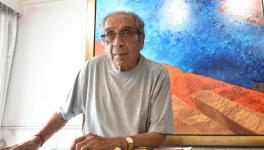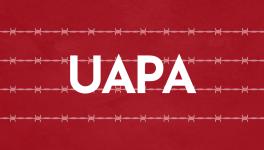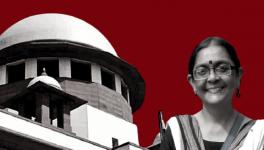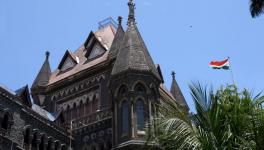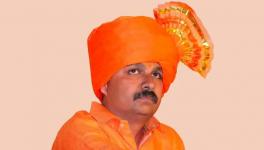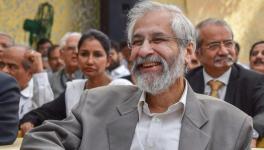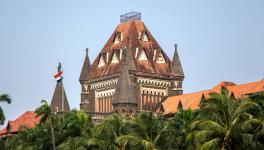‘In 1976, Sitting Judges Were Called ‘Cowards’ by Bar Association of Bombay HC’
New Delhi: Expressing grave concern over activist-lawyer Prashant Bhushan being held guilty of contempt of court by the Supreme Court for two of his tweets, civil rights group Citizens for Democracy (CFD) has termed it as an “assault on free speech” and has urged the apex court to “ignore” the tweets that it said were an expression of “anguish.”
Reminding of the days of the Emergency and the role of the apex court then, the CFD cited an article published in The Radical Humanist (June 1976) by late Justice V M Tarkunde wherein the eminent jurist had pointed toward “judicial suicide” the majority judgement by the apex court in April 28, 1976, and the “blackest day in the judicial history of India”.
The CFD said that during Emergency, several detainees had filed habeas corpus petitions in different high courts on the ground that their detention was malafide.
“This contention was upheld by seven high courts but the Government challenged the said decisions before the Supreme Court which with majority of four to one reversed the orders of the high courts on April 28, 1976, what has come to be known as ADM Jabalpur Versus Shukla case (AIR 1976 SC 1207) holding that if the executive violates the rule of law and deprives any person of life or personal liberty by a grossly malafide action, neither the aggrieved party nor the judiciary can do anything in the matter.”
That time Tarkunde wrote: “Since maintenance of the rule of law is the sole function of the judiciary, a declaration by the Supreme Court of its inability to discharge that function in the critical area of executive encroachment on personal liberty can legitimately be described as little short of judicial suicide.”
The copies of that issue were sent to each judge of the Supreme Court and to all the chief justices of the high courts,” the statement said.
The judgment in the ADM Jabalpur case had angered a large number of people. So, when the Emergency was revoked, some advocates issued statements “while the Bar Association of Bombay High Court passed a resolution declaring that that the four judges who delivered the majority judgment were ‘cowards’. These statements were published in some newspapers.”
However, the CFD pointed out that the then judges exhibited a “dignified approach in ignoring the said contemptuous statements calling the sitting judges as ‘cowards’.”
Also, the judgment in ADM Jabalpur case has been regarded as the most shameful one in the judicial history of India and has recently been over-ruled, it added, calling for the apex court to review its decision holding Prashant Bhushan guilty of contempt.
Read the full CFD statement below:
It is a matter of grave concern that the Supreme Court has held the well known lawyer Prashant Bhushan guilty of contempt of court on account of his two tweets. The judgment of the Supreme Court is an assault on the freedom of speech.
Prashant had tweeted two tweets; in the first tweet dated June 27, 2020 he said, “When historians in future look back at the last 6 years to see how democracy has been destroyed in India even without a formal Emergency, they will particularly mark the role of the Supreme Court in this destruction, and more particularly the role of the last 4 CJIs.”
The second June 29 tweet included a photo of CJI SA Bobde riding a Harley Davidson motorcycle, and it was said, “CJI rides a 50 lakh motorcycle belonging to a BJP leader at Raj Bhavan, Nagpur, without a mask or helmet, at a time when he keeps the SC in Lockdown mode denying citizens their fundamental right to access Justice!”
Supreme Court held that the tweets have the effect of destabilising the very foundation of this important pillar of the Indian democracy and it has to be dealt with iron hand. It further said that it took umbrage at Bhushan linking the Supreme Court to an ‘Emergency-like situation’ and thus held his tweets false, malicious and scandalous.
However, the Supreme Court seems to be unaware that it is not only Prashant Bhushan who is linking the functioning of the present Supreme Court to an ‘emergency’- like situation but large number of people are making this comparison. During the said ‘emergency’ (June 1975-March 1977) the fundamental rights of the citizens were suspended and those who criticized the moves of the government were sent to jail under the Maintenance of Internal Security Act,1971 (MISA).
At present large number of citizens who criticize the government are being arrested on one pretext or the other without formal declaration of ‘emergency’. Though such arrests are not on the same scale as that of emergency, but the methodology and arbitrariness is the same and authoritarian trends are clearly visible. Most of them are unable to get any relief from the courts, as happened in the ‘emergency’. Habeas corpus petitions of Kashmiri citizens are pending undecided in the Supreme Court for an year.
During emergency large number of detainees had filed habeas corpus petitions in different high courts on the ground that their detention was malafide. This contention was upheld by seven high courts but the Government challenged the said decisions before the Supreme Court which with majority of four to one reversed the orders of the high courts on April 28, 1976, what has come to be known as ADM Jabalpur Versus Shukla case (AIR 1976 SC 1207) holding that if the executive violates the rule of law and deprives any person of life or personal liberty by a grossly malafide action, neither the aggrieved party nor the judiciary can do anything in the matter.
Prashant Bhushan’s tweets ought to have been ignored. Holding him guilty and awarding him any punishment are not going to do any service to the administration of justice. Justice VM Tarkunde (retd), the then General Secretary of the Citizens For Democracy (CFD), immediately wrote an article ‘Judicial Suicide’, published in the June 1976 issue of ‘The Radical Humanist’, stating that the day April 28, 1976 would become known as the blackest day in the judicial history of India.
He further wrote:“Since maintenance of the rule of law is the sole function of the judiciary, a declaration by the Supreme Court of its inability to discharge that function in the critical area of executive encroachment on personal liberty can legitimately be described as little short of judicial suicide.”
The copies of that issue were sent to each judge of the Supreme Court and to all the chief justices of the high courts.
That judgment in ADM Jabalpur case had angered large number of people. When the emergency was revoked, some advocates had issued statements while Bar Association of Bombay High Court had passed a resolution declaring that that the four judges who delivered the majority judgment were ‘cowards’. These statements were published in some newspapers.
The said four judges were still sitting judges in the Supreme Court. A contempt of court petition was filed. The majority of two judges (Untwala and Kailasam JJ) disposed of the matter observing: “This is not a fit case where formal proceeding should be drawn up.”
Chief Justice Beg who was one of the four judges in the ADM Jabalpur case and was of the opinion that a case of contempt had been made out also signed the majority judgment stating, “However, as two of my learned brethren are of the view that we should ignore even such news items and not proceed further, I can do no more than to state the reasons for my dissent before signing a common order dropping these proceedings” (AIR 1978 SC 489: Shri Sham Lal Vs. Unknown).
Same approach was shown by the other benches of the Supreme Court relating to such statements.
The then judges exhibited a dignified approach in ignoring the said contemptuous statements calling the sitting judges as ‘cowards’. The judgment in ADM Jabalpur case has been regarded as the most shameful one in the judicial history of India and has recently been over-ruled.
At present serious issues of public importance such as challenge to Citizenship Amendment Act, 2019, the abrogation of Articles 370 and 35-A of the Constitution, several habeas corpus petitions etc. are pending in the Supreme Court. It is unfortunate that the Supreme Court took umbrage when Prashant Bhushan tried to link the present functioning of the Supreme Court to the ‘emergency-like’ situation.
The tweets ought to have been ignored. Holding him guilty and awarding him any punishment are not going to do any service to the administration of justice or enhance the majesty of law. The tweets made by Prashant Bhushan were expression of anguish felt by thousands of victimized citizens who are at the receiving end of the brutal state power and who cry and hope for judicial protection.
The people look upon the Supreme Court as citadel of justice and bulwark of democracy. We hope and pray that the Supreme Court will continue to play its assigned role with fearlessness, fairness and objectivity. We urge upon the Hon’ble Court to ignore the tweets and recall its decision holding Prashant Bhushan guilty.
Signatories: SR Hiremath, chairperson, Citizens for Democracy; ND Pancholi, general secretary; Anil Sinha, Manimala, Arun Maji, secretaries; Prof Arun Kumar, Prof Ramendra Nath, Ramsharan, Shalu Nigam, Ramesh Awasthi, Mahipal Singh, executive members
Get the latest reports & analysis with people's perspective on Protests, movements & deep analytical videos, discussions of the current affairs in your Telegram app. Subscribe to NewsClick's Telegram channel & get Real-Time updates on stories, as they get published on our website.









